Films with theme "Documentary films about racism", sorted by revenue

Back to Ararat (1988)
, 1h39Genres Documentary
Themes Films about racism, Documentary films about racism, Documentary films about law, Documentary films about war, Documentary films about historical events, Political films

To Be Takei (2014)
, 1h30Origin USA
Genres Documentary
Themes Prison films, Films about racism, Films about sexuality, Films about television, LGBT-related films, Documentary films about business, Documentary films about the film industry, Documentary films about racism, Documentary films about law, Documentary films about war, Documentary films about historical events, Documentaire sur l'homosexualité, Political films, Documentary films about World War II, Space opera, LGBT-related films, LGBT-related film
Actors George Takei, Leonard Nimoy, Walter Koenig, William Shatner, Nichelle Nichols, Lea Salonga
The film narrates the life journey of actor and activist George Takei.
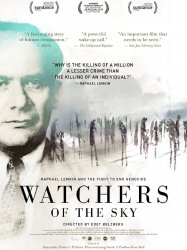
Watchers of the Sky (2014)
, 2hOrigin USA
Genres Documentary
Themes Films about racism, Documentary films about racism, Documentary films about law, Documentary films about war, Documentary films about historical events
The film depicts the journey of lawyer Raphael Lemkin and his efforts in lobbying the United Nations to establish the Genocide Convention. The movie also focuses on four people inspired by Lemkin: Samantha Power, United States Ambassador to the United Nations; Benjamin B. Ferencz, Chief Prosecutor in the Einsatzgruppen trial at Nuremberg; Luis Moreno Ocampo, first Prosecutor of the International Criminal Court; and Emmanuel Uwurukundo, head of operations for refugee camps in Chad set up by the United Nations High Commissioner for Refugees in the War in Darfur. The film is based on Power's Pulitzer Prize-winning book, A Problem from Hell.
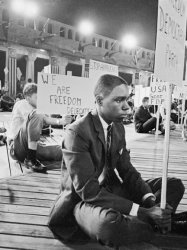
Freedom Summer (2014)
, 1h53Directed by Stanley Nelson Jr.
Origin USA
Genres Documentary
Themes Films about racism, Documentary films about racism, Documentary films about law, Documentary films about historical events, Documentary films about politics, Political films
The film narrates the events of the 1964 Mississippi Freedom Summer, when more than 700 student activists took segregated Mississippi by storm because of underscored by the systematic exclusion of African Americans from the political process. Robert Parris Moses of the Student Nonviolent Coordinating Committee developed a campaign to bring a thousand volunteers to canvassed for voter registration, creating freedom schools and establishing the Mississippi Freedom Democratic Party.

Paragraph 175 (2000)
Directed by Rob Epstein, Jeffrey Friedman
Genres Documentary, Historical
Themes Films about racism, Films about religion, Films about sexuality, LGBT-related films, Documentary films about racism, Documentary films about law, Documentary films about war, Documentary films about historical events, Documentaire sur l'homosexualité, Documentary films about religion, Political films, Films about Jews and Judaism, Documentary films about World War II, LGBT-related films, LGBT-related film
Actors Rupert Everett
Les homosexuels ont été comme tant d'autres les victimes du régime hitlérien. Ils étaient persécutés en vertu du paragraphe 175 du code pénal allemand. Ce paragraphe, datant de 1871, condamnait à la prison "les actes contre nature" entre hommes.
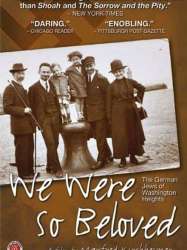
We Were So Beloved (1986)
, 2h25Genres Documentary
Themes Films about racism, Films about religion, Documentary films about racism, Documentary films about law, Documentary films about war, Documentary films about historical events, Documentary films about religion, Political films, Films about Jews and Judaism, Documentary films about World War II
 , 1h38
, 1h38Origin Canada
Themes Films about racism, Documentary films about racism, Documentary films about law
 , 56minutes
, 56minutesOrigin USA
Themes Films about slavery, Films about racism, Documentary films about racism, Documentary films about law, Documentary films about historical events

Red Shirley (2010)
, 28minutesDirected by Lou Reed
Origin USA
Genres Documentary
Themes Films about racism, Films about religion, Documentary films about racism, Documentary films about law, Documentary films about war, Documentary films about historical events, Documentary films about religion, Political films, Films about Jews and Judaism, Documentary films about World War II
Actors Lou Reed
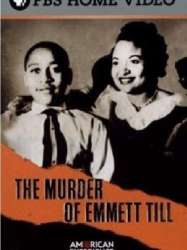
The Murder of Emmett Till (2003)
Directed by Stanley Nelson Jr.
Genres Documentary
Themes Films about racism, Documentary films about racism, Documentary films about law, Documentary films about historical events
Actors Andre Braugher
En 1955, l’assassinat au Mississippi d’un jeune Noir accusé d’avoir sifflé une femme blanche secoue les États-Unis, et joue un rôle primordial dans le déclenchement du mouvement pour les droits civiques. Portrait glaçant d’une Amérique capable de tous les extrêmes.

The Uncondemned (2016)
, 1h25Origin USA
Genres Documentary, Crime
Themes Films set in Africa, Films about racism, Documentary films about racism, Documentary films about law, Documentary films about war, Documentary films about historical events
The Uncondemned recounts the 1997 trial of Jean-Paul Akayesu for his alleged knowledge of the rapes and other war crimes during the Rwandan Genocide in 1994. The film features three women, who were victims of rape and anonymously testified in the trial, as well as American prosecutors Pierre-Richard Prosper and Sara Darehshori recalling their building the case against Akayesu.
 , 1h12
, 1h12Directed by Alfred Hitchcock
Origin United-kingdom
Genres Documentary, Historical
Themes Films about racism, Films about religion, Documentary films about racism, Documentary films about law, Documentary films about war, Documentary films about historical events, Documentary films about religion, Political films, Films about Jews and Judaism, Documentary films about World War II
Actors Trevor Howard, Jasper Britton, Alfred Hitchcock

Origin USA
Genres Documentary
Themes Films about racism, Documentary films about racism, Documentary films about law, Documentary films about historical events, Documentary films about politics, Political films
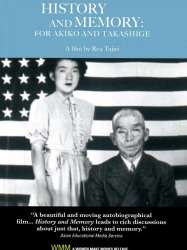 , 32minutes
, 32minutesOrigin USA
Genres Documentary
Themes Prison films, Films about racism, Documentary films about racism, Documentary films about law, Documentary films about war, Documentary films about historical events, Political films, Documentary films about World War II
 , 1h32
, 1h32Genres War, Documentary
Themes Films about racism, Films about religion, Documentary films about racism, Documentary films about law, Documentary films about war, Documentary films about historical events, Documentary films about religion, Political films, Films about Jews and Judaism, Documentary films about World War II
The film tells its story by relating the accounts of Jewish survivors "who return to Italy in their late adulthood to revisit the scenes of their worst nightmares: hidden in terror, fleeing in desperation, separated from loved ones, saying final goodbyes without knowing they were final."
 Connection
Connection